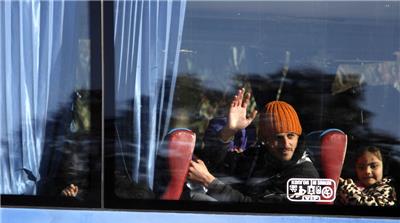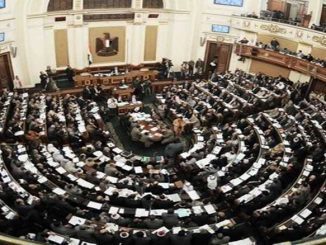
Assad regime’s army and rebel forces have agreed on a truce in the besieged neighbourhood of al-Waer in the central city of Homs, a few days after a similar agreement was made in Darayya city.
Under the agreement, signed by the local reconciliation committee and government officials, President Bashar al-Assad’s forces are to end the siege on the area and stop bombardments in return for the withdrawal of rebel groups.
Al-Waer has been the only neighbourhood under rebel control in the city of Homs after government troops consolidated their grip over the city in 2014. Since then, the area witnessed unremitting fighting, artillery shelling and air strikes.
An estimated 75,000 people still live in al-Waer, down from about 300,000 before the start of the Syrian conflict in 2011.
A UN-backed agreement initiated last year saw the evacuation of hundreds of residents from the neighbourhood but the deal did not hold amid reports that the government refused to release detainees.
Wednesday’s truce document stated that the deal is to be implemented in five stages, whereby rebels would be evacuated gradually and detainees held in government prisons would be released.
In the first stage in the implementation of the agreement, 300 rebels and their families would be evacuated to opposition-held areas in northern Syria, mainly to the province of Idlib. In return, the government would open the roads to al-Waer and allow food in.
The second stage would see the withdrawal of 500 rebel members along with their families from the neighbourhood and the release of 200 al-Waer residents detained in government-run prisons.
In the third stage, the government would declare the fate of prisoners based on a list submitted by the reconciliation committee, and 300 more rebel fighters will be evacuated to northern Syria with their families.
The opposition fighters, in the fourth stage, would withdraw from government institutions, and all the remaining rebels would be evacuated with their families.
Finally, the government would consolidate full control over the neighbourhood.
A nation-wide exudus
In several Syrian areas, lengthy government sieges have prompted rebels to agree to evacuation deals, leading activists to accuse Damascus of using “starve or surrender” tactics.
Last week, buses evacuated residents and rebel fighters from the Damascus suburb of Daraya under a deal that was agreed on after a four-year siege by government forces.
Another deal is being discussed for the besieged Muadamiya suburb of Damascus, but Al Jazeera’s correspondent in the area said a final agreement between the government and rebels had yet to be reached.
Final conditions dictated by Assad’s forces require that rebels hand over all their weapons before being transferred to Idlib.
Some opposition groups have criticised these preconditions, calling them a major setback as Sunnis would be forced from their homes, further fracturing the country along sectarian lines.
They are seen as part of a pattern in which the government pushes out Sunni communities that have been living there for decades. In 2015, there was a similar deal in Zabadani on the outskirts of the capital.



